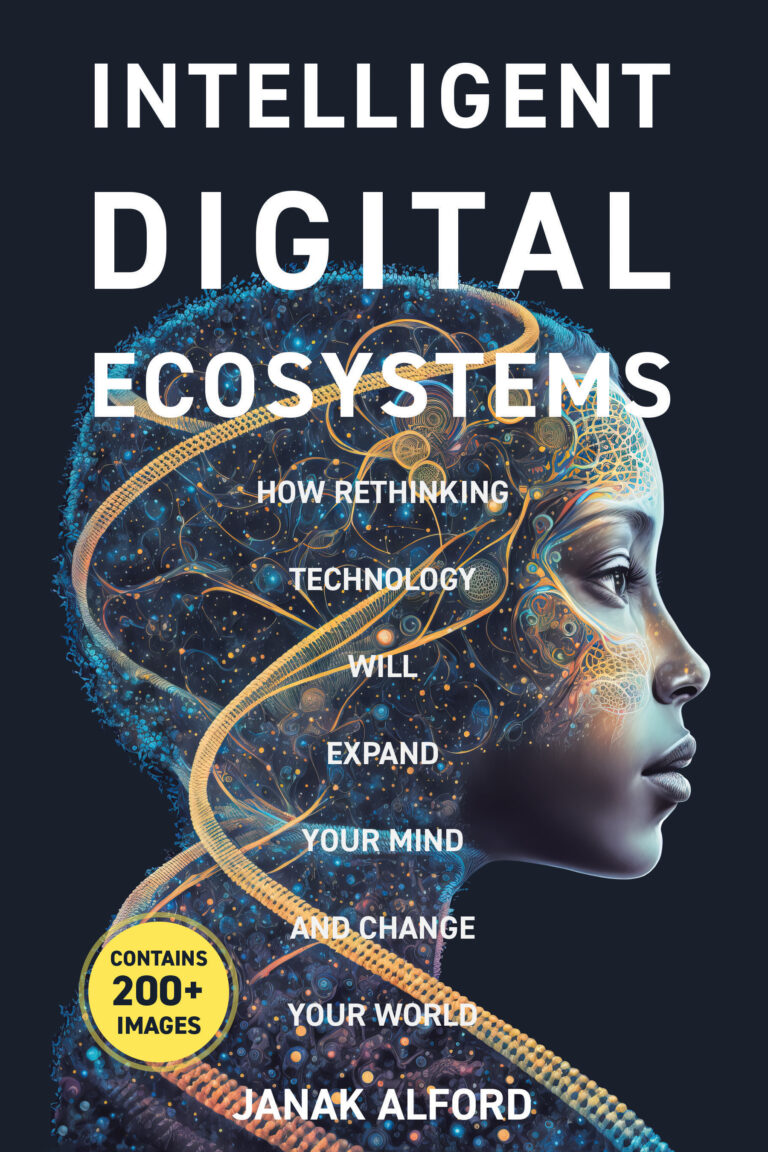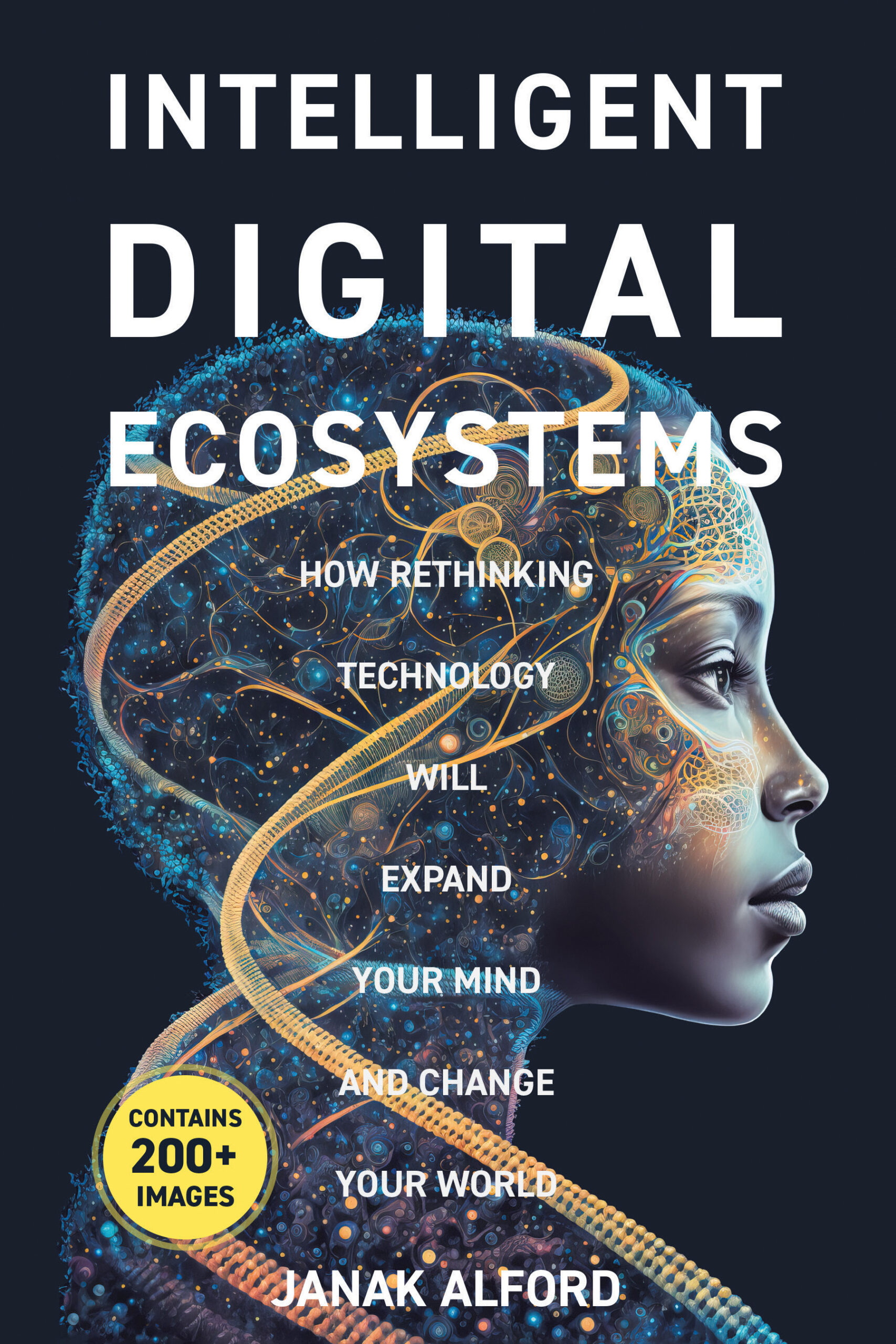In INTELLIGENT DIGITAL ECOSYSTEMS, digital technology executive and entrepreneur Janak Alford presents an alternative system for constructing and using technology. He describes his book as “a guide to building an alternative world where humans and technology achieve a state of mutually beneficial symbiosis.” Alford argues that humanity’s present relationship with technology makes us slaves to machines, while “the digitization of connectivity has amplified segmentation and tribalism, which serve to inflate anxiety and stoke feelings of animosity between individuals, families, and communities.” His vision of a new tech structure, he says, will expand our capacity to think and act, resist oppression, support our mental and physical health, promote our long-term survival as a species, and protect the natural environment. To accomplish all these goals, digital technology must become like the human microbiome, which Alford describes as a “host of cells lives within each of us in a state of symbiosis, mutually beneficial coexistence where each organism relies on and enables the survival of the other.”
The book’s thirty chapters are divided into three parts. The first part looks at the shortcomings of the existing digital system, examining how data and algorithms lead to new concepts of intelligence. The second part shifts into fiction writing or, as Alford puts it, “visual abstractions leverage the metaphors of nature to illustrate the experience of interacting with a digital ecosystem.” The third section of the book examines the advantages and drawbacks of his concept. Unfortunately, although Alford asserts that his book “is intended for the layperson and technologist alike” and that it eschews “the excessive use of jargon”, the lay reader will still find his arguments hard going. He deals with concepts that will be comprehensible to persons already familiar with the literature on computer software and programming. For example, Alford argues that the file and folder method of structuring data is “fundamentally flawed” because it handles digital information like an object that cannot be stored in two places simultaneously. “A better system is to apply metadata to describe each piece of data using a concept like a noun.” All this may be true, and probably is, but the layperson has no way to decide this. However, it is notable that in his chapter on his intelligence, he asserts that IQ tests are divorced from “real-world applicability”—a claim contradicted by decades of real-world predictions of IQ scores to academic success, income, and even life satisfaction. Alford’s vision is dependent, not on technological capacities, but on his moral and ideological beliefs. So, even for readers who understand his concepts, persuasion will depend on agreement with those beliefs rather than any objective measures.
There’s no doubt that digital technology executive, entrepreneur and author Janak Alford knows his subject and for those who can follow his arguments, INTELLIGENT DIGITAL ECOSYSTEMS has many interesting speculations about the future of the relationship between human beings and AI technology.
~Kevin Baldeosingh for IndieReader


